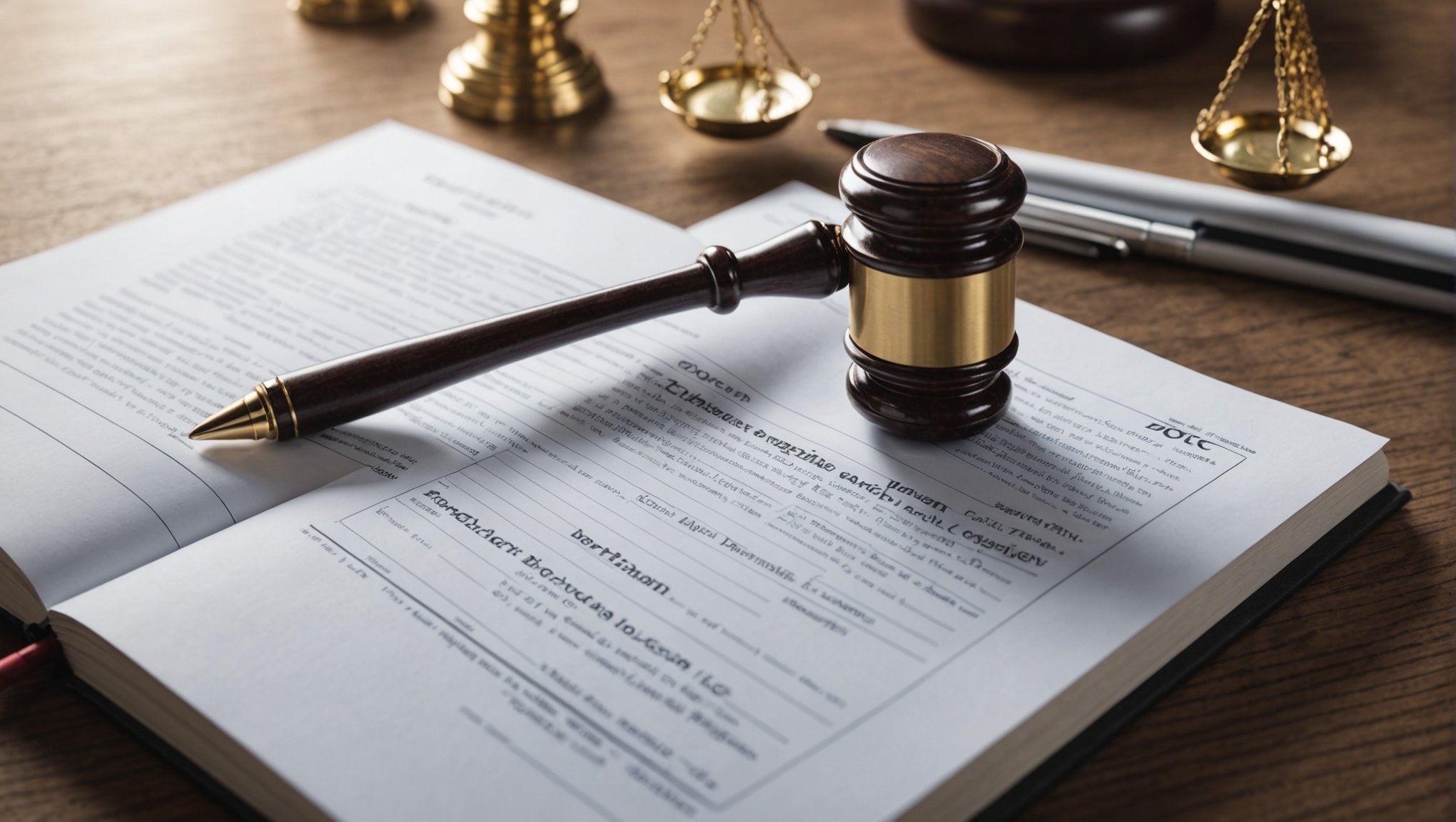Blockchain technology is rapidly transforming the legal sector in the UK, offering innovative ways to secure and streamline documentation. By integrating blockchain into legal processes, professionals boost transparency, reduce fraud, and enhance efficiency. This shift not only meets the demands for accountability but also paves the way for a more digital and accessible legal framework. Explore top strategies to effectively implement blockchain in your legal documentation, ensuring your practice stays ahead of the curve while reaping significant benefits.
Overview of Blockchain Technology in Legal Documentation
Blockchain technology is a decentralised digital ledger that securely records transactions across multiple computers. This ensures data integrity and transparency, making it a valuable tool for legal documentation. By using blockchain, legal documents can be tamper-proof, with each transaction or amendment recorded in a way that is both permanent and verifiable.
Have you seen this : What are the steps to create a secure blockchain-based voting system for UK’s local elections?
In the UK, the adoption of blockchain technology in the legal sector is gaining momentum. Legal documentation often requires a high degree of accuracy and security, and blockchain provides a solution by offering an immutable record of transactions. This is particularly important in areas such as property deeds, contracts, and intellectual property rights, where the authenticity of documents is crucial.
The current state of blockchain adoption in the UK legal sector shows a growing interest, with several law firms and legal tech companies exploring its potential. While the full integration of blockchain technology is still in progress, the benefits it offers in terms of efficiency, security, and cost-effectiveness are encouraging more stakeholders to consider its implementation. As the legal industry continues to evolve, blockchain is poised to play a significant role in transforming how legal documentation is managed and verified.
Also to discover : Maximize your reach: automate instagram dm outreach today
Effective Strategies for Blockchain Integration
Implementing blockchain technology in legal processes requires careful planning and collaboration. Identifying key legal processes suitable for blockchain integration is crucial. Processes like property deeds, contract management, and intellectual property rights are prime candidates due to their need for high security and transparency.
A step-by-step guide to implementing blockchain in legal documentation involves several stages. First, assess which legal processes can benefit most from blockchain's features. Next, develop a comprehensive plan that includes selecting the right blockchain platform and setting clear objectives. It's essential to ensure that all stakeholders understand the benefits and potential challenges of blockchain integration.
Collaboration between legal professionals and tech experts is vital. Legal professionals bring an understanding of the intricacies of legal processes, while tech experts provide the technical know-how necessary for successful blockchain integration. This partnership ensures the technology meets legal standards and addresses any compliance issues.
Finally, ongoing training and support are necessary for a smooth transition. As blockchain technology continues to evolve, keeping up-to-date with the latest advancements will help maintain efficiency and security in legal documentation. By following these strategies, blockchain can be effectively integrated into the UK legal sector, enhancing accuracy and trust.
Case Studies of Successful Blockchain Implementations
Exploring blockchain case studies in the legal industry reveals compelling success stories. In the UK, several notable examples highlight the transformative potential of blockchain technology. One such case involves a major law firm that integrated blockchain for managing property deeds. This implementation resulted in enhanced transparency and reduced processing time, showcasing the efficiency blockchain can bring.
Another success story comes from a legal tech company that utilised blockchain for contract management. By employing a decentralised ledger, they ensured contracts were tamper-proof and easily verifiable. This not only increased trust among parties but also streamlined the contract lifecycle.
The analysis of these legal industry examples underscores significant benefits. Blockchain solutions have led to improved data accuracy, heightened security, and cost savings. These advantages are crucial in a sector where precision and reliability are paramount.
Lessons learned from these successful blockchain projects include the importance of stakeholder collaboration and ongoing training. Engaging both legal and tech experts ensures the technology aligns with legal standards and addresses compliance challenges. Continuous education helps keep pace with technological advancements, maintaining the efficacy of blockchain implementations. These insights pave the way for broader adoption in the legal industry.
Regulatory Considerations for Blockchain in Legal Documentation
Navigating the UK regulations surrounding blockchain technology is crucial for its successful implementation in legal documentation. The UK has established a legal framework to ensure blockchain compliance, focusing on data protection and privacy. This framework includes regulations such as the General Data Protection Regulation (GDPR), which impacts how blockchain can be used to store and manage personal data.
One of the primary challenges posed by existing legal frameworks is the tension between blockchain's immutable nature and the GDPR's "right to be forgotten." This creates a complex scenario where legal professionals must balance the need for permanent records with individuals' rights to amend or delete personal information.
To effectively navigate these regulatory hurdles, it's essential for stakeholders to engage in ongoing dialogue with regulatory bodies. Recommendations include:
- Developing blockchain solutions that incorporate privacy by design.
- Collaborating with legal experts to ensure compliance with existing laws.
- Staying informed about evolving regulations to adapt strategies accordingly.
By understanding and addressing these regulatory considerations, the UK legal sector can harness blockchain's potential while maintaining compliance with legal frameworks. This approach not only fosters trust but also paves the way for innovative applications of blockchain technology in legal documentation.
Benefits of Using Blockchain in Legal Documentation
Implementing blockchain technology in legal documentation offers numerous benefits that enhance the sector's efficiency and trustworthiness. One of the primary advantages is the enhanced security and data integrity it provides. Blockchain's decentralised nature ensures that once data is recorded, it cannot be altered or tampered with, safeguarding sensitive legal documents from unauthorised changes.
Additionally, blockchain significantly streamlines legal processes, improving overall legal efficiency. By automating certain tasks and reducing the need for intermediaries, blockchain can expedite processes such as contract management and property deed transfers. This not only saves time but also reduces costs associated with lengthy legal procedures.
Another key benefit is the increased transparency blockchain brings to legal transactions. Each transaction is recorded on a public ledger, allowing all parties involved to access and verify the information. This transparency fosters greater trust among parties, as the immutable nature of blockchain ensures that all data is accurate and verifiable.
In summary, the adoption of blockchain in legal documentation offers substantial benefits, including enhanced security, streamlined processes, and increased transparency. These advantages make blockchain a valuable tool for transforming the legal industry.
Future Trends and Implications for the Legal Industry
As the future of blockchain unfolds, the legal industry stands on the brink of significant transformation. Emerging trends indicate a shift towards more sophisticated blockchain applications, such as smart contracts and decentralised legal platforms. These innovations promise to revolutionise how legal documentation is managed, offering enhanced efficiency and accuracy.
Legal industry trends suggest that blockchain will increasingly integrate with artificial intelligence and machine learning. This combination could automate complex legal tasks, reducing human error and increasing productivity. Moreover, blockchain's potential to provide real-time updates and verifications could further streamline legal processes, making them more responsive and adaptive.
However, the path to widespread adoption is not without challenges. Legal professionals must navigate the complexities of blockchain's implementation, including regulatory compliance and data privacy concerns. Furthermore, the rapid pace of technological advancement requires continuous learning and adaptation to stay ahead.
Moving forward, legal professionals should consider the implications of these trends. Embracing innovation while ensuring ethical standards and compliance will be crucial. By staying informed and proactive, the legal industry can harness blockchain's full potential, paving the way for a more efficient and transparent future.











